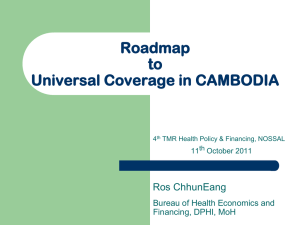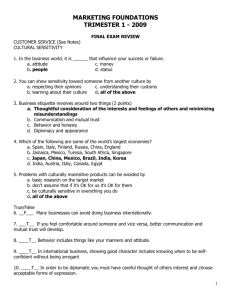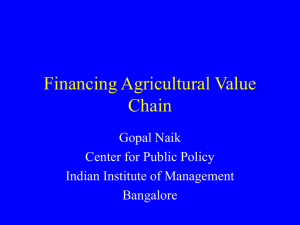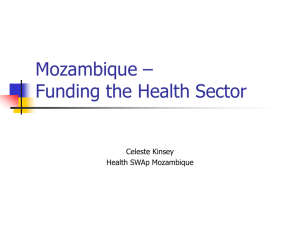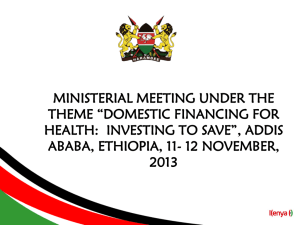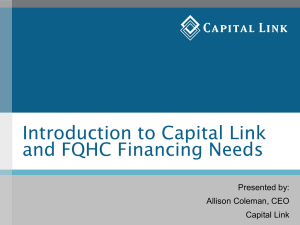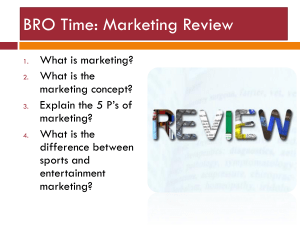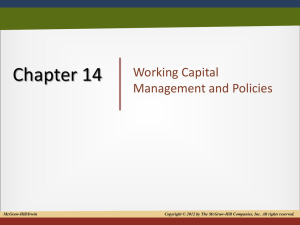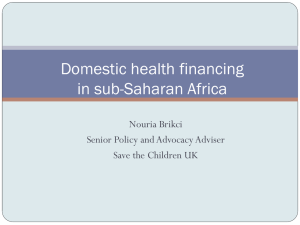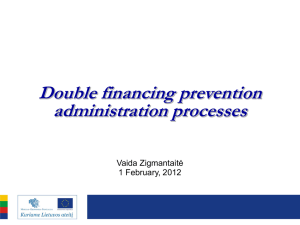Update from Malaysia conference. Universal coverage
advertisement
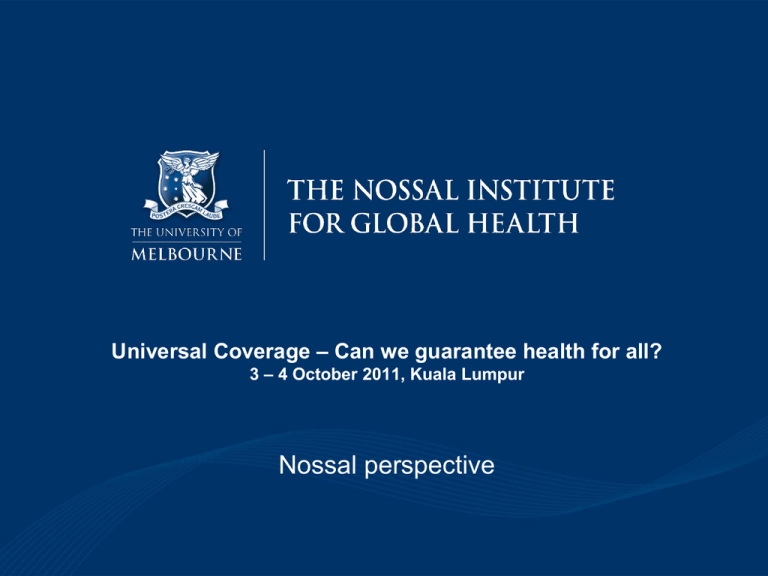
Universal Coverage – Can we guarantee health for all? 3 – 4 October 2011, Kuala Lumpur Nossal perspective Symposium Overview Monash University, Sunway campus, Malaysia and Jeffrey Cheah Foundation Participants: Policy makers, Academia, WHO, private health sector & insurance companies Countries: Australia, Bangladesh, China, Ghana, India, Indonesia, Malaysia, Philippines, Thailand, Singapore, South Africa & Sudan Keynote address Scientific papers: 20 Jeffrey Cheah Global Health Oration Panel Discussions The Symposium discussions Reflected on the practical implications of the The World Health Report 2010 ‘Health Systems Financing: The Path to Universal Coverage’ and The Health Financing Strategy for the Asia Pacific Region (2010-2015) Reviewed experiences and explored opportunities to strengthen health system to accelerate progress towards universal coverage Found out more about what it meant to work as part of universal coverage Key Areas of Discussions Diseases burden & healthcare priorities Service infrastructure & health workforce Measurement, monitoring and health information system Gaps in health governance Equity Health financing Experiences in universal health coverage Key Issues Health Financing High out of pocket spending Low and fragmented public financing Resource mobilization for universal coverage is a major challenge Social health protection schemes against catastrophic cost Gaps in implementing the national health insurance programme Increase the extent of population coverage: How to cover informal sector? Types of services should be covered by universal coverage Increasing burden of NCDs on ability to achieve and sustain UC Benefit package design: Equity in benefit package Readiness of the health system Fragmented public-health care system Private sector involvement in support of universal coverage Coverage is a specific question in health financing terms both In the provision of adequate services and in providing access to them specially by the poor through targeting mechanisms Level of coverage: How to extend coverage to those in the informal sector remains a major challenge for universal coverage Poverty-focused demand-side financing mechanisms as a means for moving towards universal coverage Health Equity Fund (HEF) Community Based Health Insurance (CBHI) Voucher Conditional Cash Transfer (CCT) Country case studies: Barriers to scaling up for universal coverage Cambodia: Scaling up of HEFs and CBHI Lao PDR: National Health Insurance Authority Aim: Assist the Ministry of Health and develop partners to strengthen the institutional arrangements for the implementation of a national system for universal health coverage Cambodia: preliminary results Revenue collection: Harmonizing funding- Agreement of the donors Subsidy Pooling: Pooling would be difficult Purchasing and provision of services: Contracting Role of National Agency in purchasing & provision of services: Third party management Standardization of benefit package Provider payment mechanism Accreditation, management and evaluation to ensure quality of care CONCLUSIONS When policy change will be implemented remains unclear Where will National Social Security Fund (HEF+CBHI) be? Role of Ministry of Health as an implementer (Capacity?) Harmonizing regulations, guidelines (HEF+CBHI) & M&E plan Lao PDR Revenue collection: Subsidy needed to cover the informal sector Simplified and computerised claim procedures Pooling: Agreement on amounts to be pooled from social insurance and donor funds Purchasing and provision of services: Purchasing and provision policies Provider payment policies Policy related to benefit package Fund management at the district and provincial level CONCLUSIONS Approval of the decree will take time Location of National Health Insurance Authority undecided Capacity needed for implementation Free maternal health care Implications and next steps Key policy and implementation challenges identified Synthesize our findings with available international evidence Assesses issues and options for integration of social protection schemes with respect to design factors and implementation procedures Policy options and strategic directions regarding institutional arrangements Based on the initial findings and recommendations, consultation meetings/ workshops will be organized with higher level officials from MOH, other relevant government agencies and development partners THANK YOU
